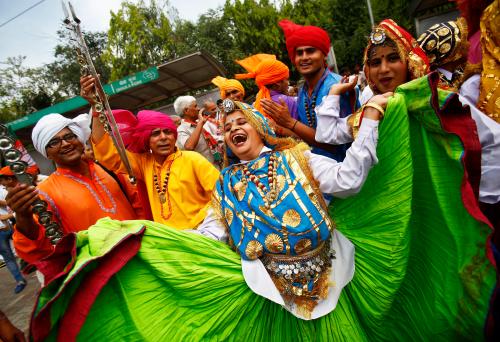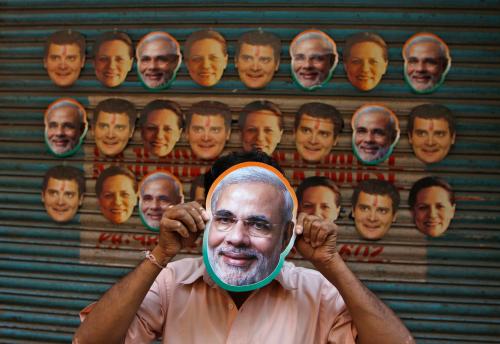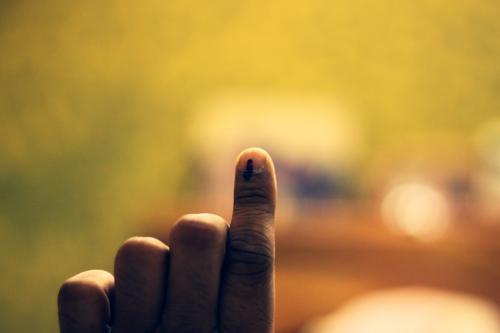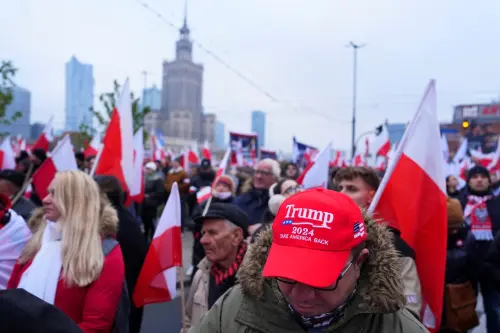Sadanand Dhume, Tanvi Madan, Ruhi Tewari, and Milan Vaishnav discuss the results of Monday’s elections in Gujarat and Himachal Pradesh.
The results of India’s state elections in Gujarat and Himachal Pradesh came in on Monday night. In the aftermath, Tanvi Madan, director of the India Project at the Brookings Institution; Sadanand Dhume, a resident fellow at the American Enterprise Institute; Ruhi Tewari, associate editor of The Print; and Milan Vaishnav, a senior fellow and the director of the Carnegie Endowment’s South Asia program, assessed the election results on Google Hangout.
The four experts discussed their key takeaways, the lessons for Indian political parties, the implications for the Congress Party and its new leader Rahul Gandhi, and the potential impact on Prime Minister Narendra Modi’s policy agenda. They also explored what the election results might suggest about the Indian political landscape over the next 18 months, when there will be a number of key state elections and then the 2019 general election.
In the western state of Gujarat, the incumbent Bharatiya Janata Party (BJP) of Prime Minister Modi kept its majority, winning 99 of 182 seats, but down from the 115 it held previously. The Congress Party increased its 2012 tally by 16, and now has a total of 77 seats. In the northern state of Himachal Pradesh, the BJP won more than twice the seats as the incumbent Congress Party (44 versus 21) in the 68-seat assembly.
The BJP comes out of the election with two wins, noted Vaishnav. However, he underscored that a BJP political platform based on its economic performance may have lost its edge. Dhume agreed and felt that, as Narendra Modi seeks re-election in 2019, there will be a pivot away from an economic platform to a more hardline, identity politics-based one. Tewari, however, noted that the BJP campaigns have always emphasized both development and identity politics themes.
Tewari observed that the BJP swept urban areas of Gujarat as expected. She added that the Congress Party should not learn the wrong lessons from the gains it made; that she didn’t see “any great traction…on the ground” for the party. She pointed out that Congress could have done more to capitalize on “farmer anger” and to rally even more of the rural vote against the BJP. Dhume agreed that “talk of Congress revival and Rahul Gandhi being back in the game…are greatly exaggerated” and predicted “an extreme uphill struggle” for Gandhi and his party. Tewari indicated that Rahul Gandhi has struggled to connect with voters and must do more to shore up his image.
Vaishnav, in turn, noted that the Congress Party organization is now “showing signs of life”—the question is whether this energy will be sustainable. Nonetheless, as India moves toward key state elections and the general elections over the next year and a half, he expects that we might see a much more competitive political landscape emerge. The Gujarat results have “now introduced a little bit of additional masala to the Indian election scene.” The experts also discussed the extent of the rural-urban divide in voting patterns and the potential policy responses this could generate.
Madan looked ahead to four big state elections next year, of which the BJP is the incumbent party in three. She also asked Dhume what the next year and a half of Indian politics leading up to the general election could mean for the US-India relationship. In Washington, Dhume replied, there is a general sense that Prime Minister Modi has been good for the U.S.-India relationship, and bilateral relations have strong bipartisan support. Similarly, in India, the relationship seems to have support no matter which party is in charge. He mentioned that a deterioration in communal harmony or interfaith relations in India could pose some problems for the country on Capitol Hill, but by and large he does not “foresee too many hiccups” going forward.
For more details on the elections and expert analysis, you can watch the full conversation here.
The Brookings Institution is committed to quality, independence, and impact.
We are supported by a diverse array of funders. In line with our values and policies, each Brookings publication represents the sole views of its author(s).





Commentary
Assessing the Indian state election results
December 21, 2017